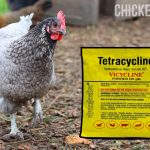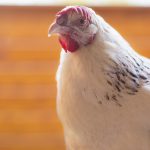How Long Can Chickens Go Without Food?
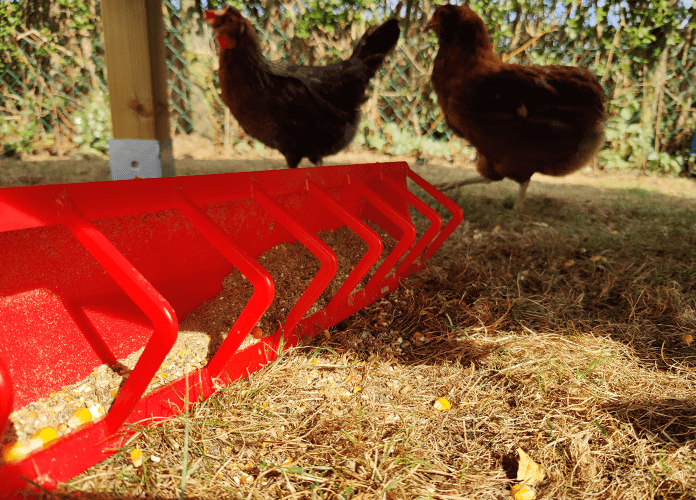
Chickens are known to be very hardy animals, and they can endorse quite extreme situations. But what about their food and water intake? How long can chickens survive without food? And what if you forget to feed them once in a while?
Let’s find out.
how long can chickens survive without food?
An adult chicken kept in an enclosed run can last 4-5 days without food if the animal has access to water. Without access to water, chickens can survive up to 48 hours when temperatures are cool but no longer than 12 to 16 hours during a heatwave.
The following overview is an estimation of time of how long a chicken can go without food but with access to water.
| Type of chicken | Temperatures of 75 degrees Fahrenheit (24°C) or below | Hot weather/heatwave (more than 75 degrees Fahrenheit (24°C)) |
| Hatchlings | / | 2-3 days |
| Baby chicks | 2-3 days | 2 days or less |
| Cooped adult chicken | 4-5 days | 4-5 days |
| Free-ranging adult chicken | Indefinite | Indefinite |
How long a chicken can go without food depends on various factors, especially the environment your hens are kept. Let’s have a closer look at possible scenarios.
- Free-ranging chickens
- Chickens kept in an enclosed run
- Trapped or lost chicken
Free-Ranging chickens
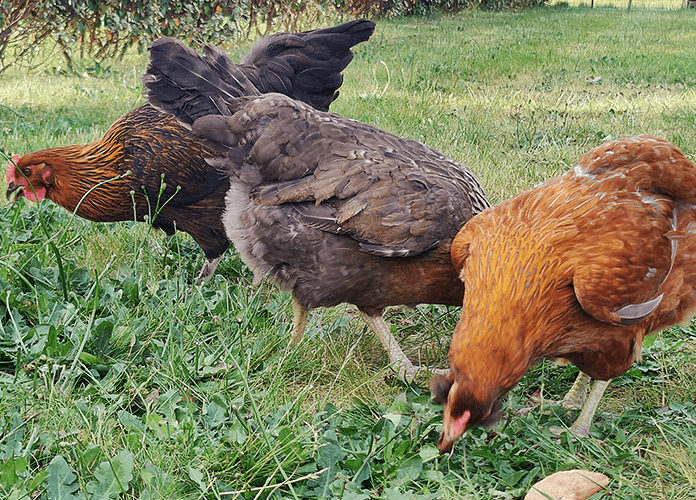
Let’s get something straight. With access to plenty of fresh water and when free-ranging your chickens, they don’t need to be commercially fed daily. Especially during summer, when there are plenty of bugs and plants to eat, they’ll be scratching and foraging all day and find plenty to eat. Chickens are self-sufficient animals that’ll search for their own food when no commercial food mix is available. But providing them with plenty of fresh, cool water is vital!
That being said, that doesn’t mean they’ll be well-nourished as they won’t get all nutrients from a free-ranging diet. Chickens are great foragers, but you shouldn’t rely on this ability for their overall health. Lack of calcium is frequently seen in free-ranging chickens with no other food source.
Chickens need a more balanced diet than what can be found during foraging, so access to commercial feed remains necessary, especially during the winter months. Lack of proper nutrition can lead to various health problems and a decrease or even completely stop egg production.
Provide extra calcium sources for laying hens. Lack of calcium can cause egg-laying issues like soft-shelled eggs, leading to hens eating their own eggs.
Chickens kept in an enclosed run
When keeping your chickens inside an enclosed pen, less ‘natural’ food, like bugs, worms, or weeds, is available. An additional grain mix feed is necessary to keep them healthy and strong. How much they’ll eat during the day depends on chicken to chicken. Are they active during the day? How big is your hen, and is she actively laying eggs? On average, a chicken will eat approximately 1/4 pounds of food per day which translates into half a cup of feed per day per hen.
Because chickens can not overeat, it’s best to keep food available all day. They’ll stop eating when their crop is full. Keeping food inside the coop at night is a good practice to prevent rodents from stealing the food, but it has no use for the hens themselves as they do not get up at night to eat. They go to bed with their crop full and won’t eat until the following day when they wake up.
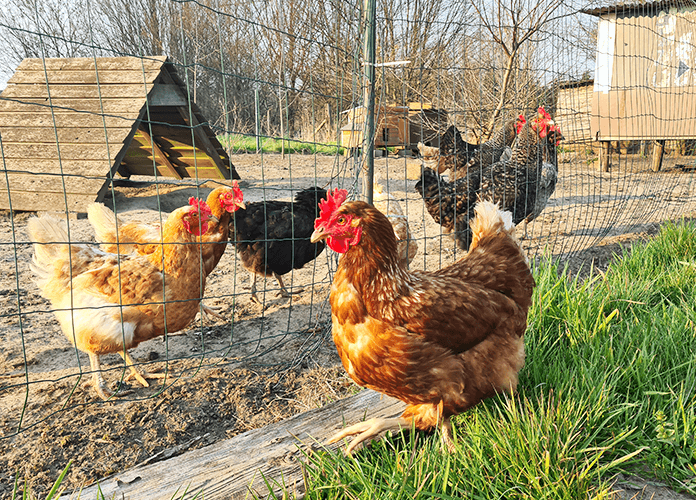
That being said, chickens can survive a couple of days without access to any kind of food if they still have access to water. The amount of time they last without food depends on numerous factors such as weather conditions, age, health, and weight. After 4 or 5 days without food, they’ll become extremely weakened, and the chances of surviving get slimmer.
Trapped or lost chicken
The situation is entirely different if your chicken gets locked up somewhere accidentally or gets trapped and can’t get out. There are many stories of distracted chicken keepers forgetting the one chicken they placed separately. Or a free-ranging hen gets trapped inside a shed or barn without the owner knowing. In that case, survival chances are very slim as there probably won’t be any access to water or food.
How long can a chicken go without water?
All living animals, like humans, need water to survive. The amount of time they’ll last without it depends on various factors such as the weather and temperature. Chickens are hardy birds but stand cold temperatures better than hot ones. As chickens have no sweat glands, they rely on their respiratory system to cool down. Providing them with loads of fresh, cool water is vital to cool them down.
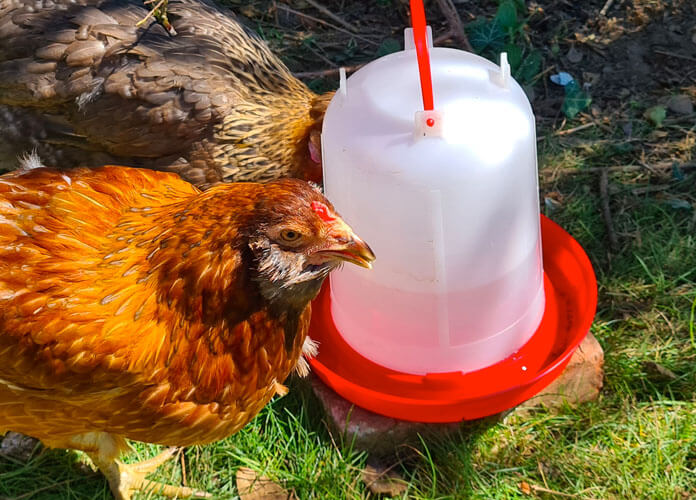
During a heatwave or when living in a hot climate, a chicken that doesn’t have access to water or shade probably won’t survive longer than 12 to 16 hours. In normal temperatures, around 75 degrees Fahrenheit (24°C) or below, chickens can survive up to 48 hours without any water.
If the trapped or lost chicken has access to water, she’ll probably survive 4 to 5 days without food.
Dangers of underfeeding your chickens
Forgetting to feed your chickens in the morning can happen to everyone once in a while. As long as the fasting does not last longer than a day, no harm is done, except you’ll have some cranky and annoyed chickens running around. But when it happens more than occasionally, or when you forget to feed them more than one day in a row, there are major issues to keep in mind.
Reduced Egg Production
When a hen does not have enough nutrients to stay healthy, she’ll first reduce or completely stop egg production. She needs the nutrients to stay alive instead of using them to produce eggs.
Egg Eating
When a hen is still laying eggs but has no more access to any food source, she’ll start to eat her own (or other hens’) eggs. Egg eating is a tough habit to unlearn, so in this case, it’s better to prevent than to cure.
Cannibalism
Starving chickens turn to each other and peck weak chickens inside the flock, even until death. It mostly starts with feather pecking and aggression towards each other but can easily escalate to cannibalism. Poultry is known to consume their own species, so when there is no food available, turning to their fellow flockmates is common behavior.
Summary
Underfeeding chickens is always tricky. Whether you forgot to feed them or your chickens won’t eat due to stress, there are health issues to keep in mind, such as reduced egg production and cannibalism. How long chickens can stay alive without food depends on numerous factors, such as access to water, age, and the environment.
If you want to learn more about chicken feed, please consult our ‘Chicken Food Page‘ to go and see every specific food article we address. Including all articles on what chickens can and can not eat. Or go to our listicle food summary on ‘The Classroom‘.



